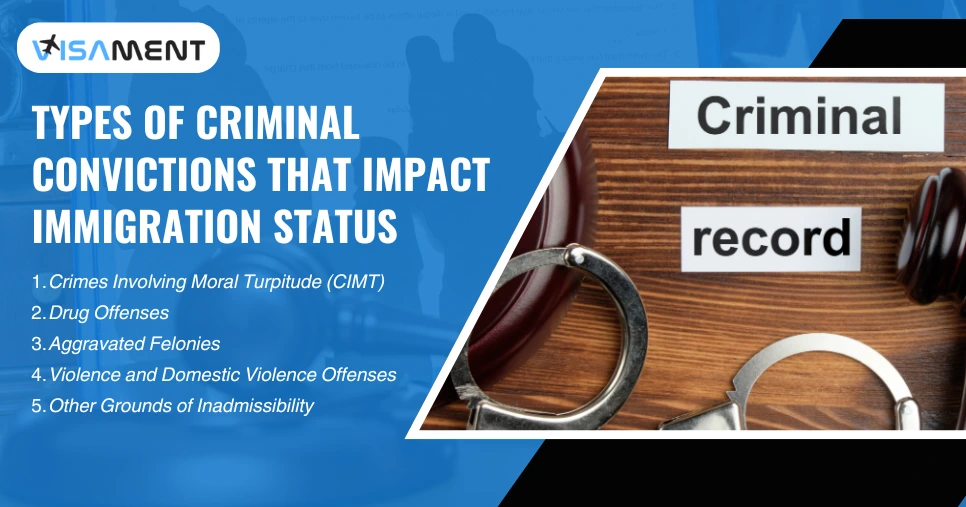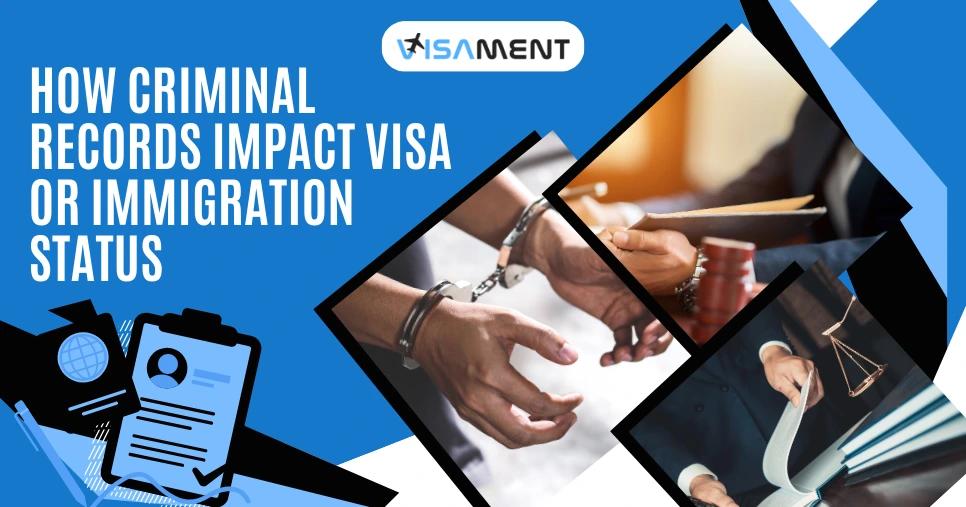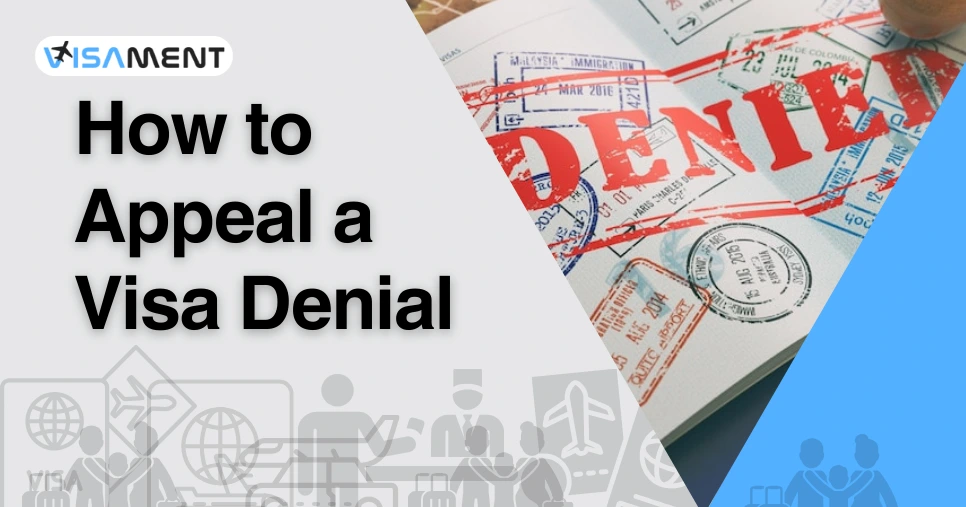In this fast-paced world, every individual is seeking better job opportunities, exploring different countries, higher education, and more. To get everything, many of them want to relocate to another country. However, they have to face multiple aspects when it comes to applying for visa applications. Criminal records have a major impact on visa or immigration status. Having a criminal record can have a significant impact on someone's ability to get a visa, enter a country, and keep their legal immigration status when they are there.
Here in this blog, we will explore how criminal records impact a visa or immigration status. We include the legal implications of criminal convictions. Additionally, we will also talk about how individuals with criminal backgrounds might navigate the immigration system. But before that, you need to understand immigration and criminal records. So let's begin with it.
Understanding Immigration and Criminal Records
There are some rules and regulations, or what is also known as immigration laws. This set of rules is designed to determine who can enter, stay, or leave a country based on the different conditions. All recorded criminal charges or convictions are referred to as criminal records. This can include criminal offenses and, in certain situations, arrests that did not lead to a conviction, depending on the nation's laws.
Each country follows these policies strictly for the entry of people with criminal records. All of the records are particularly based on national security, public safety, or criminal behavior in the country. All of these visa policies depend on the nation, but still, some themes exist in how criminal records affect immigration decisions.
The U.S. Visa or Immigration System and Criminal Records
When we talk about criminal records for immigration purposes, the United States plays a vital role in this. The USCIS (U.S. Citizenship and Immigration Services), CBP (U.S. Customs & Border Protection), and ICE (U.S. Immigration and Customs Enforcement) are the bodies that find out who can enter the country. Alongside these bodies also decide who can stay in the country under what conditions. Criminal records can affect green card eligibility, visa applications, and various things. So if you are going to onboard to another country, then you must know the types of criminal convictions. It is because they can have an impact on immigration status.
Types of Criminal Convictions that Impact Immigration Status

Want to know how different types of criminal records impact visa or immigration status? Then being with us next will lighten up the types of criminal records that disqualify people from immigration or result in deportation. The INA (U.S. Immigration and Nationality Act) lists various types of crimes that affect immigration status; let's shed light on those.
Crimes Involving Moral Turpitude (CIMT):
It refers to immoral, dishonest, or unethical. Some crimes come under CIMT, including fraud, theft, assault, and many more. An applicant who has been found guilty of a CIMT may not be granted a visa or green card, and they may even be temporarily prohibited from entering the country.
Drug Offenses:
Drug-related convictions can result in refusals, including possession, distribution, trafficking, or even just having controlled narcotics in your possession. Drug-related offenses are strictly prohibited in the United States, and visa or immigration officials frequently enforce these laws.
Aggravated Felonies:
Serious crimes like murder, drug trafficking, rape, and more come under this category. If travelers are found guilty of aggravated felonies are vulnerable to deportation even after years of residency in the United States, in addition to the possibility of having their visa or green card revoked.
Violence and Domestic Violence Offenses:
Crimes involving violence, including domestic violence or child abuse, can also impact immigration status. The Violence Against Women Act (VAWA) provides certain protections for non-citizens who are victims of abuse, but perpetrators of such crimes may face deportation and difficulty obtaining a visa.
Other Grounds of Inadmissibility:
In addition to the above, other offenses such as human trafficking, money laundering, espionage, and terrorism-related crimes can also result in inadmissibility. Even if the applicant has a minor or non-violent criminal history, some offenses can still have significant immigration consequences.
How Criminal Records Affect Immigration Status or Visa Applications?
When applying for a visa, individuals are required to disclose any criminal convictions. The application process involves filling out a form (such as the DS-160 for non-immigrant visas or the DS-260 for immigrant visas), and applicants are asked about their criminal history. Being truthful about past convictions is crucial, as misrepresentation can lead to serious penalties, including visa denial or future immigration bans. It's also important to check your immigration case status regularly to stay informed about any updates or issues related to your application.
We offer OCI, Visa, and Passport application services along with other services. Our team will make sure to get your dreams fulfilled by filling out an error-free application for you.
Contact US
For individuals with criminal convictions, the visa application process can be more complex. Here is how a criminal record might affect different types of visa applications:
Tourist Visas (B-1/B-2):
Criminal convictions, especially those related to drugs or moral turpitude, can disqualify individuals from obtaining a tourist visa. Applicants may be required to seek a waiver of inadmissibility to overcome this obstacle.
Work Visas (H-1B, L-1, etc.):
Individuals applying for work visas must demonstrate that they meet the criteria for the position they seek. A criminal history, particularly for more serious offenses, can make it more difficult to secure a work visa. Again, applicants may need to apply for a waiver of inadmissibility in such cases.
Family-Based Immigration:
For family-sponsored immigrants, criminal convictions can complicate the process. U.S. citizens or lawful permanent residents who have criminal records may still be able to sponsor a relative for a green card, but the applicant will face increased scrutiny. Criminal convictions could result in a denial of the family member's visa application, depending on the nature of the offense.
Student Visas (F-1, M-1):
Criminal convictions may disqualify someone from being granted a student visa. However, the impact largely depends on the nature of the offense. Minor infractions may not be as problematic, but drug convictions or violent crimes are likely to lead to denial.
Summing it up
This blog is all about how criminal records impact immigration status or visas. Above, we mentioned types of criminal records that affect visa or immigration status. Including. Apart from all of these things, if you are in one of the best agencies that offer the best visa services, then we recommend you choose Visament.
Frequently Asked Questions
By denying applications and delays in issues. It is based on the rules and regulations of the country to which you are applying.
There are 50-50 chances that it will affect your immigration status or not. It depends on the country's laws on immigration. If it is minor, then it will not affect the status of immigration.
Yes, the criminal record will lead you to deportation.
Yes, it is essential to disclose criminal records while applying for a visa.











